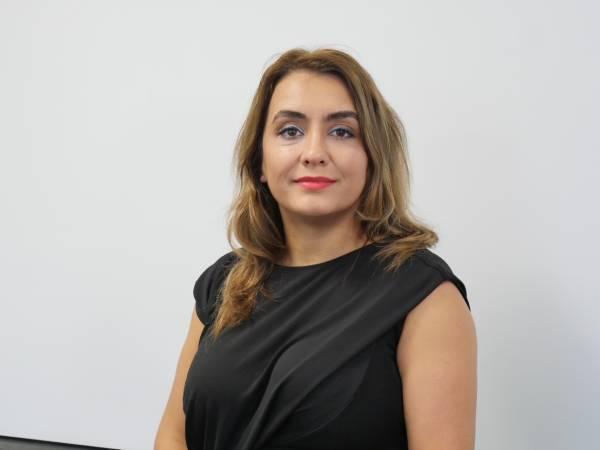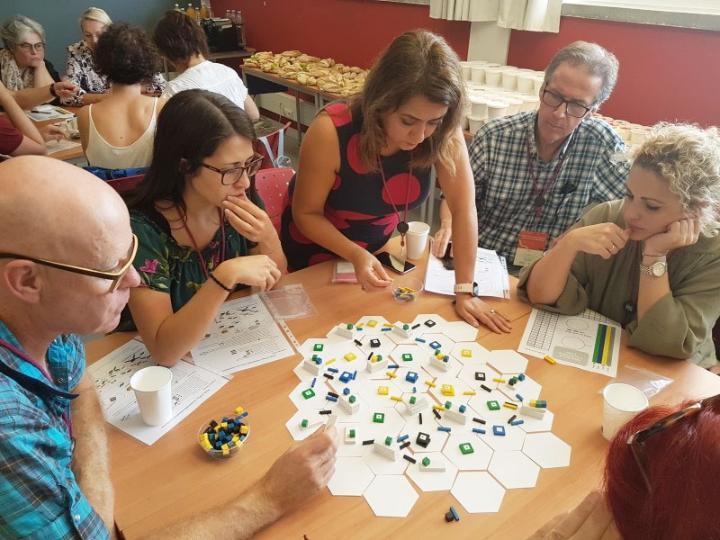Academic Profile - Dr Sara Rye
Disaster management and game-based learning
Dr Sara Rye joined the University of Bradford in March 2023 as Associate Professor in Project Management for Development in the Faculty of Management, Law and Social Sciences. We caught up with her to find out about her research interests and why they led her to Bradford...
Can you tell us a bit about your background and how you came to Bradford?
I worked in industry for seven years as a supply chain manager in automotive factories, transportation companies and as a consultant for a medical equipment distributions company, but I decided I wanted to continue my studies so I did a PhD in disaster management at Brunel University. From there I got into academia as a lecturer and then moved up to Associate Professor, looking at disaster management, risk management and project management using quantitative data and mathematical modelling.
After few years in different business schools, I realised that I was potentially missing something just using numerical data and mathematical tools, and my research would benefit from looking at disasters in terms of the historic and human aspect of it. I thought the Department of Peace Studies and International Development would be the best place to work with more qualitative data and researchers who are more focusing on the soft aspects of human impacts and Bradford is very strong in this area, with very good researchers and scientists, so I'm hoping I can collaborate with them on this.

Dr Sara Rye
What are your main areas of research?
As mentioned, I look at disaster management and collect data from a variety of sources, such as the UN and other organisations that are involved in disaster areas, and I’m particularly interested in how people are affected in a disaster zone. I’m about to publish a book of my research looking at how to optimise a humanitarian supply chain and the resource allocation within a natural onset disaster.
Another element of my research is game-based learning; I've been very sensitive towards inclusivity measures within a classroom, and I found game-based learning a very good tool to reach different kinds of learners, including students with disabilities, neurodiversity, different cultural backgrounds, etc.
As a result of my research, I created a toolkit which can be employed in a variety of different learning scenarios and for different age groups. It can be used for young children, in higher education, even in care homes with people with dementia or Parkinson's disease. The toolkit is adaptable to the learner’s needs and the materials used can also be flexible - you could use Lego, people's bodies or marshmallows and spaghetti, as long as it’s fully inclusive. For example, if you have a student who is colour blind, then you shouldn’t use too many colourful cards, or if someone has Parkinson’s disease it can be very difficult for them to hold small objects.
Games have their own rules with rewards and ‘punishment’. It’s motivational learning that grabs students’ attention and keeps them completely engaged. There’s a dictionary of games to work from, but once an educator is confident with the tools, they can create their own games that are tailored to their learners. There is also a website where they can share their practice with others, get feedback and see how others use this toolkit.
Can you point to some highlights from your research career?
I’ve had some success with the game-based learning toolkit – with Erasmus Plus funding I created a game-based learning centre across four universities in the UK, Portugal, Greece and Lithuania. Each university trained two sets of 30 educators, so at least 240 people were trained on this, and that's on top of the other dissemination that has been done in the classrooms and the online engagement we’ve seen.
I’ve also seen the success of game-based learning first-hand, and it’s been great to see students who become inspired through my techniques and go on to have successful careers. A particular student of mine got so interested in the green supply chain that she did her master's degree and PhD on that subject, and a few months ago I asked her to become an external examiner assessing my other PhD students. Another of my students started an NGO in Nepal, her home country, and recently I saw her on LinkedIn alongside the Prime Minister of Nepal who was presenting her with a medal of recognition for her service to the country.

Dr Rye demonstrating her game based-learning techniques to educators at Lusofona University, Lisbon, Portugal in October 2022.
The two books I’m about to publish about inclusivity through game play, and humanitarian supply chains (as mentioned above), are the consolidation of my work over the last few years, so it’s nice to wrap that work up in publications.
What’s coming up for you?
I’m hoping to get funding as I want to look at a comparative study into the effects of colonialism on different geographical areas and the humanitarian consequences, and model them quantitatively, now that I have the luxury of collaborating with colleagues in Peace Studies and who are expert in that area.
Find out more
You can find Sara Rye on LinkedIn, read her recent APM blog The power of collaboration: managing complex decisions and risks in project environments and find out about the TEGA (game-based learning) project.
